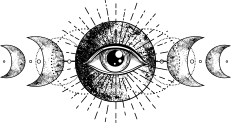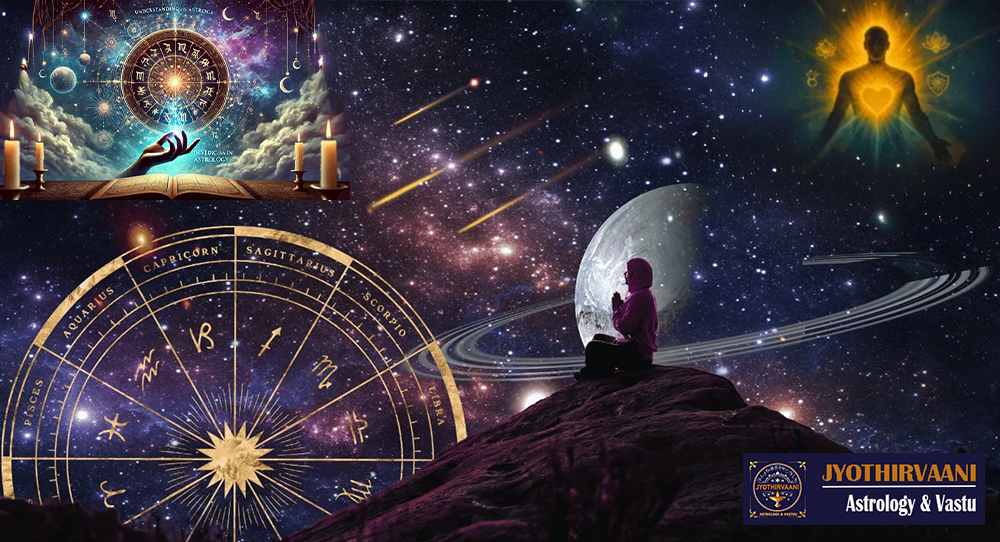Transits & Retrogrades
How Planetary Movements Affect Daily Life
In the sacred rhythm of the cosmos, every planetary movement is a whisper from the divine, guiding the soul’s journey through karma, dharma, and moksha. The ancient wisdom of Sanatana Dharma, enriched by the Krishna Yajurveda and illuminated through Jyotisha Shastra, reveals that transits (gochara) and retrogrades (vakra gati) are not mere astronomical events—they are spiritual signals, deeply entwined with our daily lives.
The Cosmic Pulse: Understanding Transits
In Jyotisha, a transit refers to the movement of a planet across the zodiac, influencing the twelve houses of the natal chart. Each planet carries a unique energy—Shani (Saturn) brings discipline, Guru (Jupiter) offers wisdom, and Kuja (Mars) ignites action. When these grahas move, they activate karmic patterns and influence our mental, emotional, and physical states.
Gacchanti grahāḥ svagṛhaṁ yadā tadā śubhaṁ phalam, paragṛhaṁ yadā yānti tadā duḥkhaṁ pradāyinaḥ.
When planets transit their own signs, they bestow auspicious results; when they enter foreign signs, they tend to bring challenges.
This verse from a lesser-known Jyotisha grantha encapsulates the essence of planetary transits—movement is not random; it is dharmic choreography.
Retrogrades: The Divine Pause
Retrograde motion, or vakra gati, is when a planet appears to move backward in the sky. In Vedic astrology, this is seen as a time of introspection and karmic re-evaluation. Retrograde planets intensify their influence, often revisiting unresolved themes from the past.
Vakre grahāḥ punaḥ smārayanti karmaṇaḥ phalam.
Retrograde planets remind us again of the fruits of our past actions.
This concept aligns with the Krishna Yajurveda’s emphasis on karma phala—the fruits of action. Retrogrades are not obstacles; they are opportunities for spiritual correction.
Sanatana Dharma: Living in Harmony with the Heavens
Sanatana Dharma teaches that the universe is a manifestation of Ṛta—cosmic order. The grahas are not just celestial bodies; they are devas, divine intelligences that uphold this order. By aligning our lives with their movements, we live in harmony with dharma.
Ṛtaṁ ca satyaṁ ca abhidhatte tadvratam.
Rta and Satya are the vows of the divine—truth and cosmic order are inseparable
— Krishna Yajurveda, Taittiriya Samhita
Transits and retrogrades are expressions of this Rta. They guide us to act when the time is ripe and reflect when the time is inward.
Practical Impacts on Daily Life
- Career & Finance: A Saturn transit over the 10th house may bring professional restructuring. Retrograde Mercury can delay communications—ideal for reviewing contracts, not signing them.
- Relationships: Venus retrograde often revisits past relationships or unresolved emotional patterns.
- Health & Wellness: Mars transiting the 6th house may energize healing efforts but also provoke inflammation—balance is key.
Kālaḥ karoti sarvāṇi, na manuṣyaḥ svayaṁ prabhuḥ.
Time does all things; man is not the master by himself.
This timeless truth reminds us that planetary movements are part of the divine timing—our role is to respond with awareness and humility.
Jyotisha as a Spiritual Compass
Jyotisha is not predictive alone—it is prescriptive. It offers remedies (parihāra), rituals (pūjā), and meditations to harmonize with planetary energies. Sri Veda Gayathri Jyothishalayam, under the guidance of Sri Sharath Chandra Sharma, exemplifies this sacred service—translating cosmic rhythms into practical wisdom.
Grahāṇāṁ balam ajñātvā na kuryāt nirṇayaṁ kvacit.
Without knowing the strength of the planets, one should not make any decision.
Conclusion: Living with the Stars
In the dance of the planets, we find the choreography of our own lives. Transits and retrogrades are not to be feared—they are celestial invitations to evolve. Through the lens of Sanatana Dharma, Krishna Yajurveda, and Jyotisha Shastra, we learn to listen, align, and live in tune with the divine.



